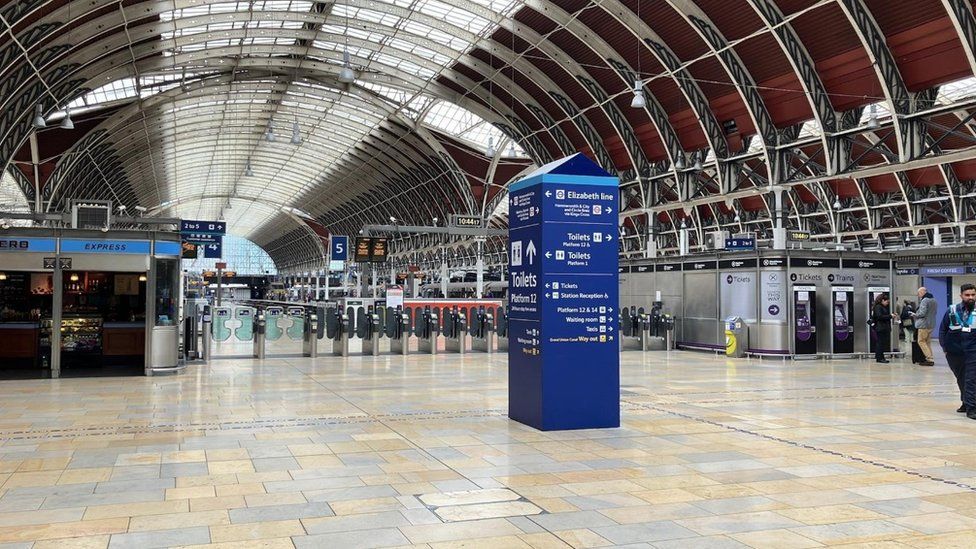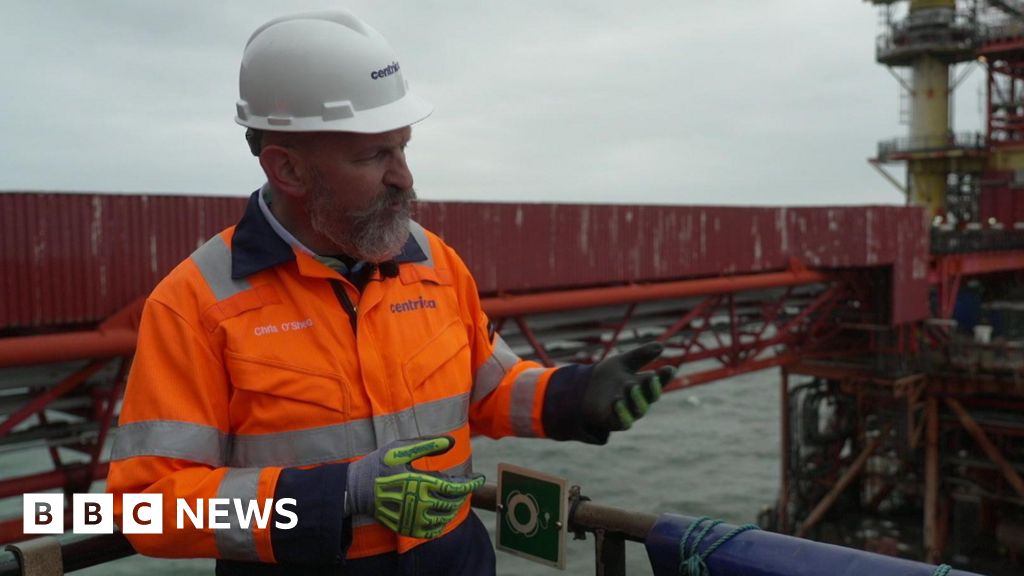ARTICLE AD BOX

An empty-looking Paddington railway station during a strike on 31 May
By Ben King
Business reporter, BBC News
Friday marks the 29th day of rail strikes since the current set of disputes began.
Members of the rail unions have been regularly bringing much of the network to a halt for nearly a year.
The leisure industry has been hard-hit as people cancel trips and holidays, or avoid city centre shops, pubs and restaurants.
But with the majority of rail commuters able to work from home, the impact elsewhere has been limited.
To understand how the UK has adapted to almost a year of rail strikes, take a look at the experience of Colin Bezant.
A cycling-mad 58-year-old, train strikes don't stop him from doing his job as a consultant helping companies manage big IT projects.
He either works from home or cycles around 50 miles from his home in Basingstoke to the London office or to his client's office in Oxford.
But it completely messes up his weekend travels to cycling events around the country. He had booked a train on Friday to get to Carlisle ahead of 600km cycle race.
Image source, Colin Bezant
Image caption,Keen cyclist Colin Bezant can hop on his bike to work but the train strikes mess up his weekend plans
The train he booked was cancelled, because of the strike by members of the Rail, Maritime and Transport union, which is expected to put a halt to half of Friday's scheduled trains.
He can't depend on getting space for his bike on the trains that are running. So he'll be getting up at 07:00 to drive 300 miles instead.
The leisure industry has protested the loudest about the impact of train strikes.
"We've seen time and time again that rail strikes put a significant dampener on any sales as visitors are deterred from booking visits or eating and drinking out," Kate Nicholls, chief executive of UK Hospitality, said in a statement.
The industry group reckons strikes this week, during the half-term school holiday, will cost the sector £132m, bringing the total impact on the sector to an "eye-watering" £3.25bn.
Having to cancel leisure activities was by far the most frequently mentioned impact of the strikes, according to the most recent study from the Office for National Statistics.
Businesses that are in stations obviously suffer particularly. The ONS tracks weekly sales from 400 Pret a Manger sandwich shops around the country, and the branches in stations see a noticeable dip in sales on strike weeks.
And retailers were acutely affected by the wave of strikes in the key shopping days ahead of Christmas last year.
But the impact of strikes on people getting to work is relatively limited, the ONS's work suggests.
Only one in 10 people actually travel to work by train, according to a different ONS survey.
And of those who do travel by train, 70% said they could work from home.
The rest could get to work by other means - though not necessarily a 50-mile bike ride - and very few respondents said they couldn't work at all because of the train strike.
Speaking to the BBC, the RMT's assistant general secretary John Leach said: "We regret the inconvenience caused by industrial action.
"We would much rather be doing what we do every other day of the year, which is keeping Britain moving, our members coming to work to do that. It's an obvious regret but it's also our responsibility to represent our people, our members, and we will never apologise for doing that."
Rail strikes have had much less impact since the signallers and other Network Rail staff agreed a pay deal to end their campaign. When the signallers joined the strikes, up to 90% of trains would be cancelled.
Train strikes will affect the Epsom Derby this weekend, as well as the FA Cup final at Wembley
The sector most hurt by the strikes may in fact be the railway industry itself.
Mr Bezant says the strikes, and cancellations caused by engineering works, have shaken his faith in the rail network.
"I expect that any events I book in the future, I will consider driving. There's not much point trusting the trains. It will change the way I travel," he says.
Even if the strikes were resolved tomorrow, he would still be uncertain. "It has been going on for so long. It will affect me for quite some time I think."
He estimates the train journeys he has not made because of strikes add up to around £700 - lost revenue for an industry that is already in a serious financial condition.
The Rail Delivery Group, which represents the train operating companies, reckons the dispute has cost the rail industry around £580m so far, a sum which increases with every new day of strike action. The bill is ultimately met by the government, which now picks up the tab for any shortfall in ticket sales.
And Mr Bezant is unlikely to be the only one who will take some time to regain his faith in the railways, even when the disputes are over.

 1 year ago
57
1 year ago
57








 English (US) ·
English (US) ·